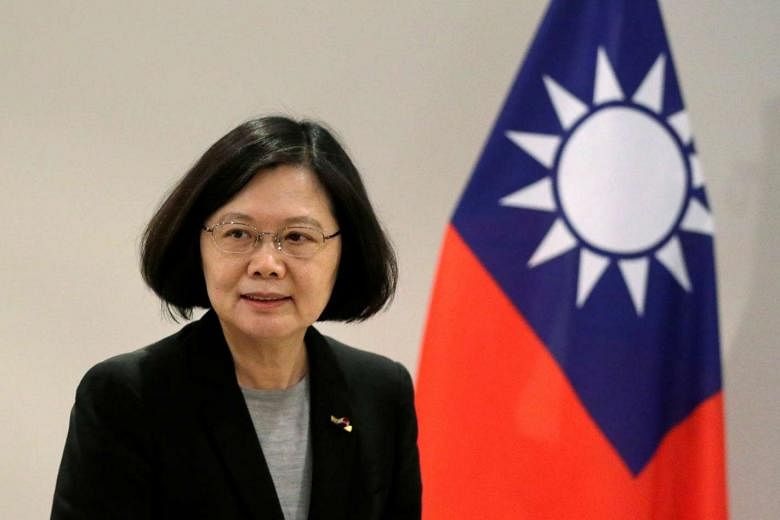TAIPEI (AFP) - Taiwan is to launch an official investigation into the ill-gotten assets of political parties in a move blasted by the opposition Kuomintang (KMT) as persecution.
The move comes after Beijing-sceptic president Tsai Ing-wen took power in May, marking the end of an eight-year rapprochement with China under the previous KMT government.
Since then relations with Beijing have become increasingly frosty and the new investigation is likely to deepen divisions between Taiwan's main parties.
Ms Tsai repeatedly challenged the legitimacy of the KMT's assets in her presidential campaign and accused it of trying to dispose of them before presidential and parliamentary elections in January.
Although a Bill passed by Parliament late Monday (July 25) authorises the investigation and seizure of ill-gotten assets from all parties, it is only the KMT that has faced questions about its trove.
Considered one of the richest parties in the world, it registered total assets of NT$18.96 billion (S$804.6 million) by the end of last year, compared with NT$478.72 million by Ms Tsai's Democratic Progressive Party (DPP).
The KMT, which fled to Taiwan in 1949 after losing a civil war to the Chinese communists on the mainland, traces its wealth to its origins in pre-communist China.
It also inherited assets nationalised by the Japanese, who ruled Taiwan as a colony from 1895-1945.
However, critics have long accused the party of stealing from the people of Taiwan and illegally amassing fortunes through cosy business links during its half-century grip on power.
Ms Tsai described the passing of the Bill as a "milestone for mature development in Taiwan's democratic politics".
But KMT chairman Hung Hsiu-chu lashed out at the DPP for using "majority violence to pass an illegal, unconstitutional and undemocratic vicious law" for its own partisan interests.
The party has repeatedly blocked the assets bill, which was first proposed 14 years ago when it held a parliamentary majority.
Now it faces a detailed probe after losing the presidency and control of Oarliament for the first time ever in January, as the public became increasingly uneasy over closer ties with China.
Under the Bill, all assets of a political party, with the exception of membership fees, political donations and government subsidies, obtained since August 15, 1945 - when the KMT took over Taiwan from Japan - are considered ill-gotten and must be returned to the government.
Political parties must declare assets to a new commission within a year of the Bill's enactment and violators will be fined up to NT$5 million.
After it fled to Taiwan in 1949, the KMT ruled under martial law until 1987, then continued to lead the government until 2000, when it lost power for the first time to the DPP.
The party was in power again from 2008-2016 when Beijing-friendly leader Ma Ying-jeou oversaw an unprecedented thaw in ties with China.

